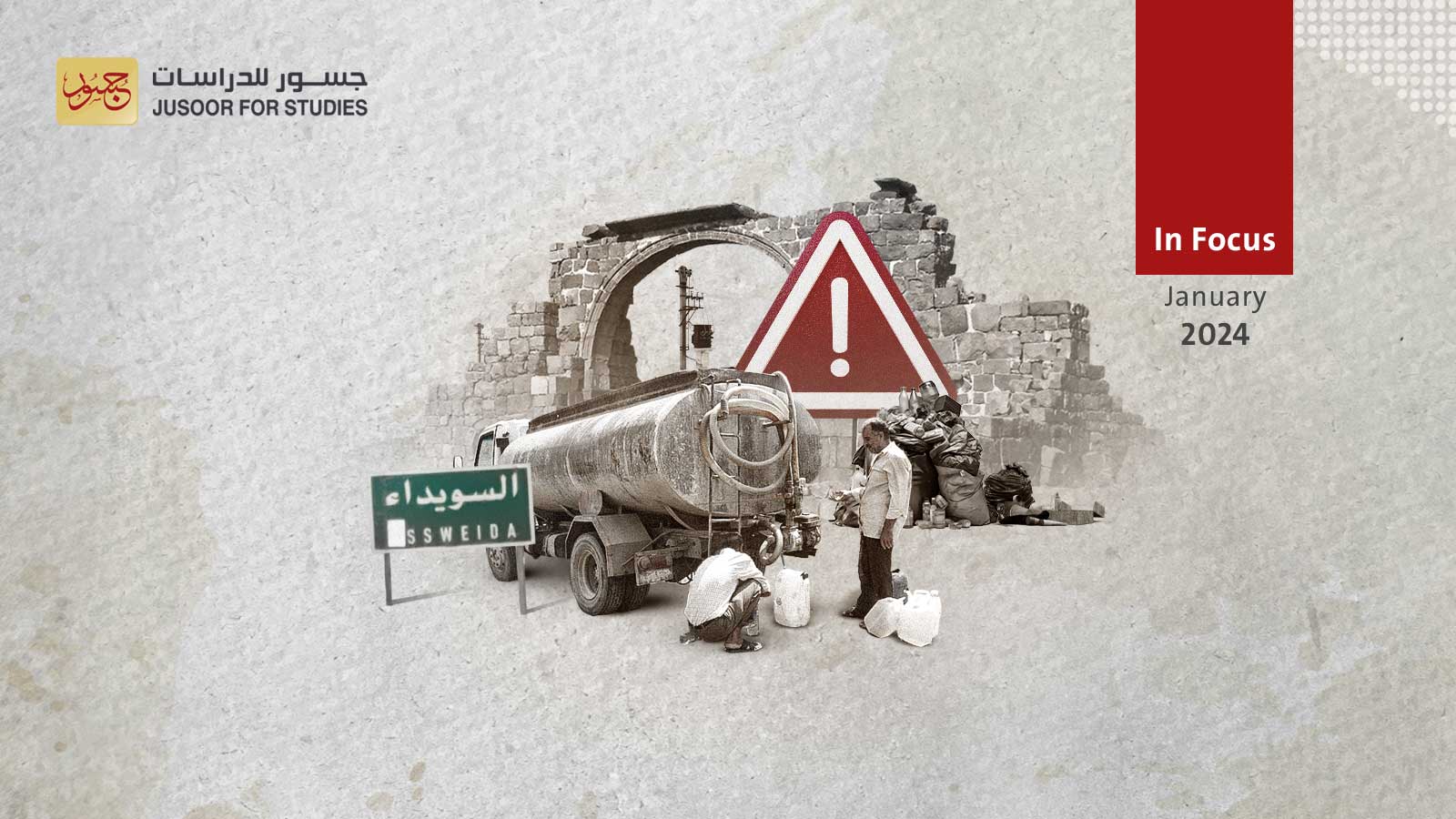Regime Weaponizes Aid against Suwaida Protests
Since mid-August 2023, Suwayda province in southern Syria has seen its longest continuous wave of anti-regime protests since the outbreak of intermittent demonstrations along with the rest of the country starting in 2011. For the first time, protests in the majority-Druze region have stuck to the political demands of a change or overthrow of the regime.
In response, the Syrian regime has adopted several tools including controlled violence, working to divide the Druze spiritual leadership and collectively punish the population by restricting their access to services and to humanitarian aid provided by government institutions or regime-affiliated charities.
For example, the regime has deliberately delayed allocated deliveries of mazut, a cheap, widely used fuel oil used for heating and vital to the inhabitants of the cold, mountainous region in the grips of winter. By the end of last year, only 25 percent of deliveries were reaching the province. There is also a shortage in fuels for vehicles, crippling internal transport in the governorate.
The regime has also neglected to repair the Al-Thalaa well system that supplies water to Suwayda city. This system has been misfunctioning for months, putting as much as 90 percent of the wells out of service. Consequently, water has been almost completely cut off from large areas, especially in the rural east of the governorate, forcing residents to buy in water via tankers, at great expense.
Its restrictive policies have extended to other vital services such as health and care for the elderly. Humanitarian associations linked to the regime - such as the Nour and Social Welfare associations, the Al-Wafa Association for the Physically Disabled, the Nabdh center and the Marsaat Foundation - have cut their deliveries to the province. Moreover, the Syrian Red Crescent and the Governorate’s General Secretariat controls aid distribution, enabling them to exploit it for political goals. A case in point took place in November, when the governor prevented the Mersaat Foundation from distributing winter coats to school students in one of the governorate’s villages after they refused to allow him to enter the village with a delegation from the Baath Party to attend the distribution process, seeing this as exploitation of aid for political goals .
By the end of 2023, the regime’s approach had not succeeded in quelling the Suwayda protests. However, it has not changed course. Damascus appears to be betting that these restrictions and collective punishment will, over time, weaken the anti-regime movement, especially since there are no strong and independent civil society organizations in the governorate that are capable of filling the resulting void in humanitarian aid.
Moreover, community-based humanitarian work based on collecting donations from expatriates is also proving insufficient to whether these policies, especially in the services sector. Moreover, residents have no access to border crossings out of the control of government forces, which would allow them to import fuel and other materials and supplies. This forces them to rely on the regime.
The Syrian regime’s policy of reducing services provided to Suwayda is a break with its approach to protests in the governorate in previous years, when it had compensated demonstrators with basic municipal and government services in order to buy silence. This seems to indicate that the regime believes that the Suwayda movement is different this time, and is therefore following the behavior it has used in other Syrian regions that fell out of its authority. The sole difference is that it has not resorted to excessive violence, keeping it within limits – for now.








